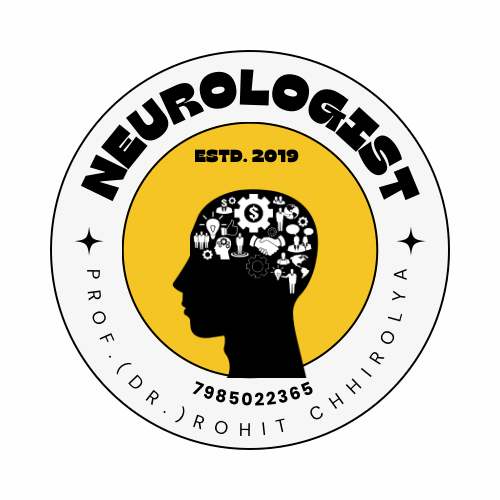The Role of Learning New Things in Dementia Prevention and Management :- A Mind elevating Blog By Prof. (Dr.) Rohit Chhirolya, MD (Medicine), DM (Neurology)
By Prof. (Dr.) Rohit Chhirolya, MD (Medicine), DM (Neurology)
Senior Consultant & Chief Neurologist, Nilakantha Brain Clinic, Cuttack
Dementia is a growing health concern, affecting millions worldwide. It is a progressive neurological condition that impairs memory, cognitive function, and daily activities. While age and genetics play a role in dementia, research shows that engaging in lifelong learning and mental stimulation can help prevent or slow down cognitive decline.
The human brain has an incredible ability to adapt and grow, known as neuroplasticity. Learning new skills, languages, or even hobbies strengthens brain connections, enhances memory, and delays the onset of dementia-related symptoms. Here’s how:
1. Boosts Brain Connectivity
When we learn something new, our brain forms fresh neural pathways, improving communication between brain cells. This increased connectivity helps in better cognitive function, even in older age.
2. Delays Memory Loss
Studies indicate that mentally stimulating activities—such as solving puzzles, reading books, or learning music—help improve memory and slow down age-related decline.
3. Reduces the Risk of Dementia
Continuous learning can reduce the risk of Alzheimer’s disease and other dementias. Activities like learning a new language or taking up a challenging hobby create cognitive reserves that protect the brain.
4. Improves Focus and Attention
Learning keeps the brain engaged, enhancing concentration and attention span. This is particularly beneficial for those with early signs of dementia.
5. Enhances Emotional Well-being
Learning new skills gives a sense of achievement and purpose, reducing stress and anxiety—both of which are linked to cognitive decline.
Best Activities to Keep the Brain Active
• Learning a new language – Bilingual individuals have a lower risk of dementia.
• Playing musical instruments – Enhances memory and coordination.
• Reading and writing – Strengthens comprehension and communication skills.
• Solving puzzles and brain games – Sudoku, chess, and crosswords stimulate brain activity.
• Engaging in social activities – Conversations and group learning reduce the risk of cognitive decline.
Early Signs of Dementia: When to See a Neurologist
If you or your loved one experiences frequent forgetfulness, difficulty in problem-solving, confusion, or changes in mood, it is essential to consult a neurologist. Early diagnosis can help in better management of the condition.
Expert Neurological Care in Cuttack
At Nilakantha Brain Clinic, KathaGola, Mangalabag, Cuttack, we provide expert diagnosis and treatment for dementia, seizures, epilepsy, ADHD, cerebral palsy, and other neurological disorders.
For appointments, contact Prof. (Dr.) Rohit Chhirolya, MD (KGMU), DM (SGPGI) at 7985022365.
Taking care of your brain today ensures a healthier tomorrow. Keep learning, stay active, and protect your cognitive health!









Thank you for posting this blog as it is very knowledgeable, and I want to visit a Neurologist because I am concerned for my sister because she has been suffering from headaches for a long time.
ReplyDelete